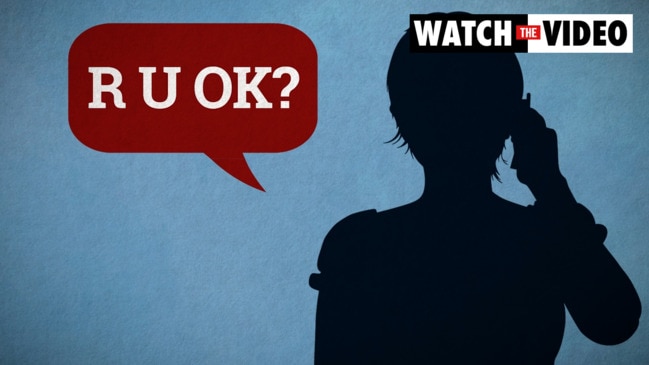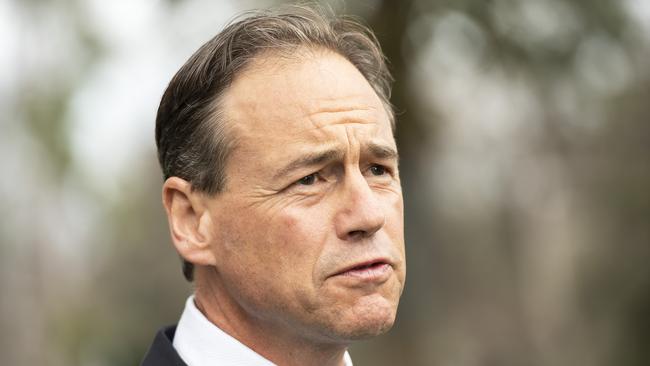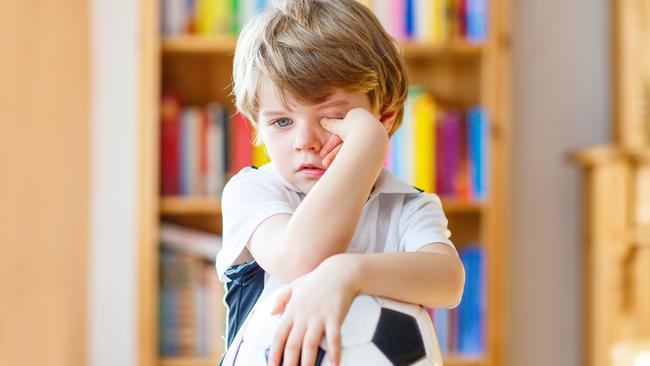Child mental health strategy should be applauded
Trying to help our young generation prepare for life’s hardships may have a way to go, but the Government’s new initiative goes further than anything else before it, writes Justin Coulson.

Rendezview
Don't miss out on the headlines from Rendezview. Followed categories will be added to My News.
In recent weeks, to surprisingly little fanfare, the Morrison Federal Government has announced a new Children’s Mental Health Strategy.
Announced by Health Minister Greg Hunt, the strategy is aimed squarely at building resilience in childhood to prevent mental illness for all Australians.
What’s more, the government has been explicit in say that primary school-aged children will be the target of this strategy. Its focus, Hunt says, is a systematic approach to identifying and treating depression, anxiety, and eating disorders in children.
While little has been written or said about the strategy, this initiative must be applauded loud and long.
MORE OPINION: The anxiety epidemic gripping our kids
We know that approximately one in seven children experience mental health issues, and that this number is rising. It is increasingly obvious that anxiety has become the common cold of mental health disorders, with children as young as four routinely diagnosed with some form of anxiety, and the numbers of children taking medication for mental health issues continuing to rise.

We also know that effective programs for supporting the parents of children with mental health issues have positive impact, to the point where we can reduce depression by over 20 per cent by providing the right support as prevention.
While the Government’s Raising Children Network offers useful resources for parents, the most useful focus for the Government would be to focus on initiatives and strategies that build and protect the family. This is because Government initiatives can support, but never replace, the protective factors for wellbeing necessary to raise resilient children.
MORE OPINION: Nothing to ‘like’ about social media’s damage to our kids
Creating a healthy parenting environment is a significant protective factor because parents who experience mental illness are at greater risk of developing disruptive attachment patterns with their children, which can then negatively impact on that child’s mental health.
Moreover, research indicates that there is often an intergenerational transmission of mental illness. By providing skills and resources to assist parents to manage their mental health more effectively, children will be more likely to be born into families that can flourish.

Beyond government intervention, we can also work responsibly ourselves to support our children’s wellbeing. Research is abundantly clear to a child love is spelled t-i-m-e. Children flourish when parents are available to enjoy quality time together. Even better if that is time spent outside. Nature is fuel for the soul — ours and our children’s.
MORE OPINION: Surely there are better ways to help ‘depressed’ kids than giving them pills
Finally, reducing pressure on our kids is vital. The trend towards hiring tutors for preschool-aged children and the push-down of pressure for academic success at young ages is not in our children’s best interests. When our ladder of success is focused on economics and academics, we become unbalanced. It profits our children nothing to be rich and well-educated, yet miserable and anxious.
Connections with parents and peers, developmentally appropriate skill acquisition through play, physical activity outside, time to be still, and the opportunity to give to something larger than the self are scientifically shown to bolster mental health and sustain resilience through life’s challenges. It takes a village, sure. But the village needs to slow down and concentrate on what matters most.
Parents will do well to let kids be kids.
Justin Coulson is a Member of the Australian Psychological Society.
Originally published as Child mental health strategy should be applauded


